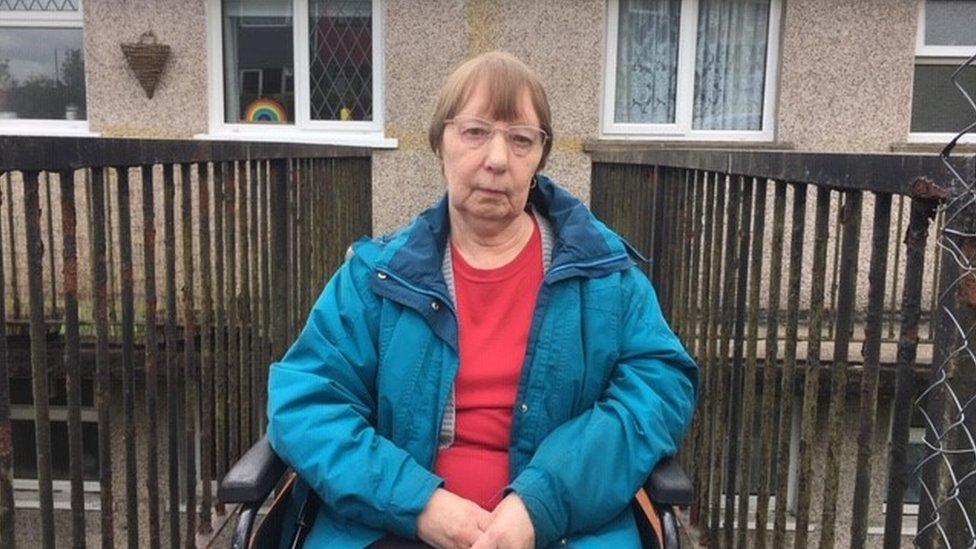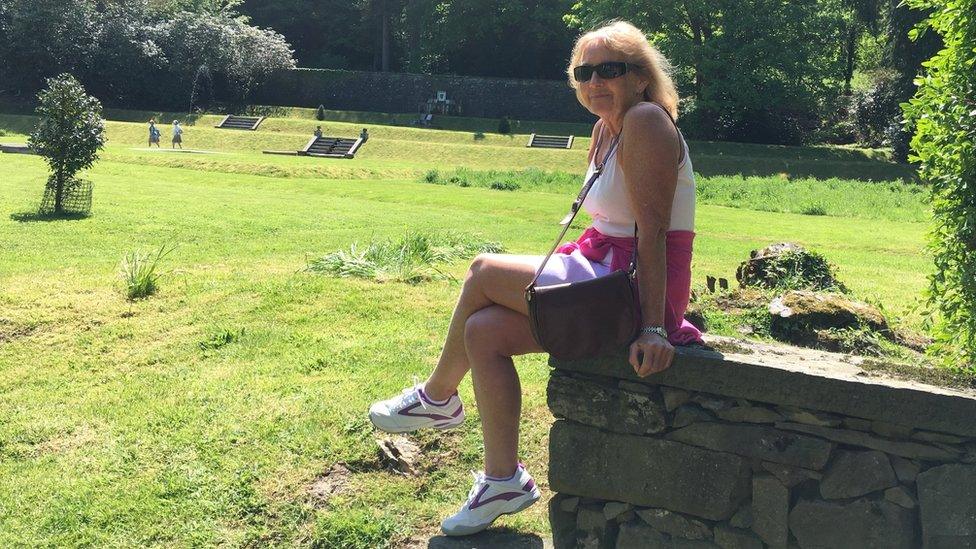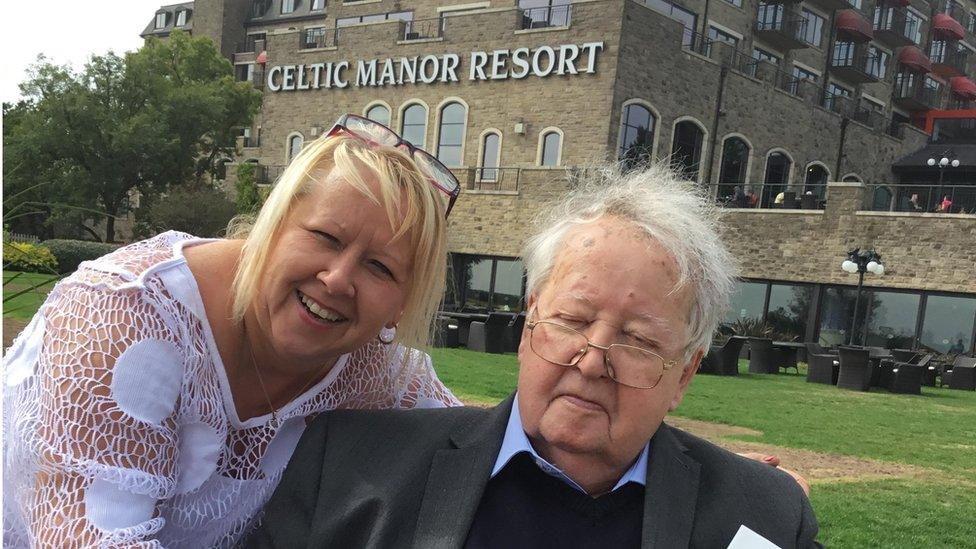Coronavirus: Disabled woman's home a 'cell' in lockdown
- Published
Carol Cray says she has been living in a "glorified cell" since lockdown began
A disabled woman says she is living in a "glorified cell", unable to leave her home.
Carol Cray, 65, said carers who usually drive her to the shops or to the park are no longer taking her in the car due to the coronavirus pandemic.
She said it was also hard to go outside her home in Brynmawr, Blaenau Gwent, in her wheelchair as the surrounding streets are too hilly.
The Welsh Government said there were exceptions to the rules for carers.
The company which provides her care, Radis Community Care, said it could not comment on individual cases but supports service users in a "safe and legal manner".
Ms Cray would be allowed in carers' cars under Welsh Government rules, and while Radis said it follows the guidance, it added that it "strives to provide alternatives to going outside".
"It really is getting to me. I just can't take any more," said Ms Cray, who has osteoarthritis and fibromyalgia.
"Sometimes I just feel like smashing the place to pieces because you get so angry and frustrated."
Ms Cray lives alone and does not have any family who can help.
She receives Personal Independence Payments (PIP) from the UK government and has support workers who help her in the house and to get out and about.
"They'd [previously] take me in the car then, go down to the Post Office, pay all my bills," she said.
"They'd take me to the dentist, to the doctors, to do my shopping.
"But without 'my girls', and a car, and someone to push a wheelchair, I can't go."

Carol Cray says she feels angry and frustrated about her situation
Ms Cray says using a car is the only option because the streets around her home are too hilly for her to be pushed any distance in a wheelchair.
"It's alright if you live on the flat but, up here in the valleys, you've got steep hills," she said.
"There's bound to be other people in the country that feel the same as I do.
"Somebody has got to speak up."
Paula Hoggarth, from Radis, said: "Lockdown has been a particularly tough time for many service users across the UK.
"We've worked hard throughout this challenging period to balance the physical and mental health of both our service users and our staff.
"We always strive to provide alternatives for going outside that adhere to government regulations and we will continue to ensure that we're doing everything we can to support our service users in a safe and legal manner.
"Obviously, we can't comment on individual cases but we do all that we can to ensure that the lives of our service users carry on as normally as possible in these challenging times."

THE R NUMBER: What it means and why it matters
LOOK-UP TOOL: How many cases in your area?
EXERCISE: What are the guidelines on getting out?
RECOVERY: How long does it take to get better?

- Published14 June 2020

- Published12 June 2020

- Published12 June 2020

- Published28 May 2024
